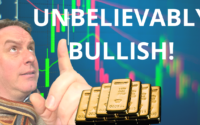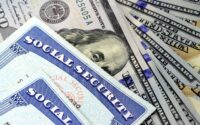Why Wall Street ‘is much more worried’ about Powell than Putin: Morning Brief
This article first appeared in the Morning Brief. Get the Morning Brief sent directly to your inbox every Monday to Friday by 6:30 a.m. ET. Subscribe
Thursday, February 25, 2022
Inflation, and the Fed’s reaction to it, remains the biggest market risk
Crying ‘havoc,’ Vladimir Putin has let slip the dogs of war — both in Eastern Europe and global financial markets.
Thursday’s breathtaking comeback on Wall Street, roiled by panic-selling stemming from the Russia-Ukraine conflict, signaled how emotional investors have become in an era of high inflation and worldwide instability.
One example of online Gallows humor, useful during grim and tumultuous times, was particularly accurate on Thursday, as a Twitter meme referred to the Russian president as the world’s most influential portfolio manager.
Given the pandemonium Russia’s offensive against Ukraine has unleashed — and Wall Street’s violent reaction — the joke was perhaps a bit too on the mark. Meanwhile, Putin is fashioning himself as more of a modern-day tsar than a chief investment officer.
Yet all kidding aside, Thursday’s deadly serious events, and the resulting roller-coaster price action, provide us with an opportunity to revisit one particular theme that should remain paramount.
Amid the bedlam taking place across the Atlantic, it’s easy to lose sight of the fact that demand in the world’s largest economy remains strong enough to keep inflation uncomfortably elevated. And that runs the risk of making Federal Reserve Chairman Jerome Powell trigger-happy at the central bank’s next policy meeting.
The Russia-Ukraine crisis “is going to cause the Fed to be a little more thoughtful, a little slower in their rate increases,” People’s United Chief Investment Officer John Traynor told Yahoo Finance Live on Thursday. “But we do believe the trend is still up with the Fed.”
In fact, Fed policy is the subtext of virtually every discussion about the market’s direction. Whether policymakers can successfully arrest surging inflation is one of the reasons why crude oil — which briefly spiked above $100 per barrel Thursday – has become one of the biggest concerns emanating from the Ukraine crisis. JPMorgan Chase forecast Brent could surge to $115 per barrel by the second quarter.
“Higher rates typically mean lower valuations,” said Brad McMillan, chief investment officer for Commonwealth Financial Network, noting that the forward price-earnings ratio for the S&P 500 has tumbled precipitously since the end of 2021.
That decline “pretty much explains the drop in the market. And that rationale doesn’t leave much, if any, room for worries about Ukraine,” McMillan added. “Wall Street, then, seems to be much more worried about Fed Chairman Jay Powell than Vladimir Putin, at least at the moment.”
To be sure, the economic consequences of the incursion into Ukraine are substantial, and include “more Western restrictions on Russia’s natural-resources industry that curtail global supply,” The Economist noted in this week’s edition.
Russia, which accounts for 10% of the world’s crude supply, according to Energy Information Administration data, “may retaliate by deliberately creating bottlenecks that raise prices,” the magazine noted.
That scenario would inevitably worsen price pressures, as Yahoo Finance’s Rick Newman wrote in an analysis Thursday. However, a Russia-Ukraine conflagration is complicating the growth picture, and that means investors can’t entirely rule out a more dovish stance from the Fed when it meets next month, Yahoo Finance’s Brian Cheung explained.
Thursday’s head-spinning reversal may be a hint that investors are starting to put Russia-Ukraine behind them, consistent with the idea that geopolitics doesn’t move markets for very long. Tighter monetary policy, then, is starting to concentrate minds.
“The current situation is different from past episodes when geopolitical events led the Fed to delay tightening or ease because inflation risk has created a stronger and more urgent reason for the Fed to tighten today than existed in past episodes,” according to Goldman Sachs. That backdrop is being worsened by a troubling mix of rising wages, high inflation expectations and soaring commodity prices, the bank added.
“As a result, we do not expect geopolitical risk to stop the FOMC from hiking steadily by 25bp at its upcoming meetings, though we do think that geopolitical uncertainty further lowers the odds of a 50 [basis point] hike in March,” Goldman noted.
A tight labor market and still high demand is fanning the “growing risk that Fed officials will want to see a faster slowdown in output and employment growth and will act to tighten financial conditions more aggressively to slow growth to potential,” the bank’s analysts wrote.
“Although geopolitical risks are clouding the near-term outlook, these broader risks are likely to frame the outlook for longer,” it added.
By Javier E. David, editor at Yahoo Finance. Follow him at @Teflongeek
—
Read the latest financial and business news from Yahoo Finance
Follow Yahoo Finance on Twitter, Instagram, YouTube, Facebook, Flipboard, and LinkedIn
[ad_2]
Source link

